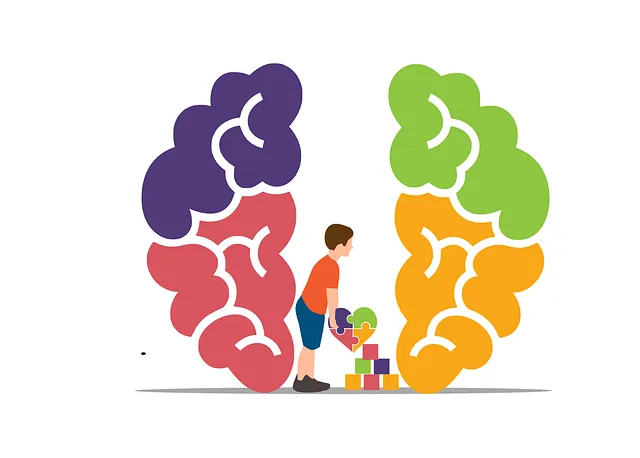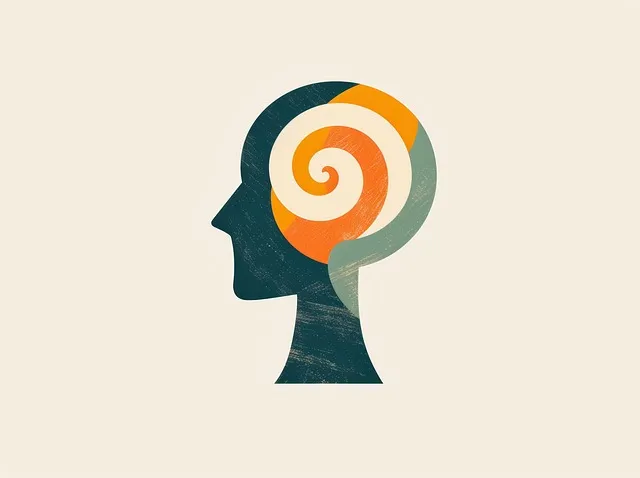Denver Kaiser Permanente's mental health department emphasizes emotional intelligence (EI/EQ) as a vital personal growth tool, accessible via their dedicated phone line. Through mindfulness exercises, introspection, and self-awareness practices, individuals learn to recognize and manage their emotions, fostering empathy and healthier responses. This equips them with improved decision-making skills, stronger relationships, and enhanced well-being, all supported by the department's professionals through personalized EQ development paths and holistic care approaches.
Emotional intelligence (EI) is a powerful tool for personal and professional growth. It enables individuals to navigate complex social situations, foster meaningful connections, and make thoughtful decisions. This article explores strategies to enhance EI, drawing from the expertise of the Denver Kaiser Permanente mental health department. We’ll delve into key aspects such as self-awareness, empathy, effective communication, and mindfulness, providing practical insights accessible to all.
- Understanding Emotional Intelligence: A Key to Personal Growth
- The Role of Self-Awareness in Building Emotional Intelligence
- Developing Empathy: Connecting with Others on a Deeper Level
- Effective Communication Strategies for Enhanced Emotional Intelligence
- Practicing Mindfulness: Calming the Mind for Better Decision Making
Understanding Emotional Intelligence: A Key to Personal Growth

Emotional intelligence (EI) is a powerful tool for personal growth and self-improvement. At Denver Kaiser Permanente’s mental health department, accessible through their dedicated phone number, professionals emphasize EI as a key to navigating life’s challenges. It involves recognizing, understanding, and managing one’s own emotions, as well as empathizing with the feelings of others.
Developing emotional intelligence can lead to significant improvements in self-esteem and overall well-being. By cultivating self-awareness through exercises focused on mindfulness and introspection, individuals can gain a deeper understanding of their emotions, triggers, and behaviors. This awareness is crucial for implementing mind over matter principles, enabling people to reframe negative thoughts and foster healthier emotional responses.
The Role of Self-Awareness in Building Emotional Intelligence

Emotional intelligence (EQ) is a vital skill set that enables individuals to understand and manage their own emotions while recognizing and empathizing with others. Among its key components, self-awareness stands out as foundational. It’s akin to the compass that guides navigation within one’s emotional landscape. By cultivating self-awareness, individuals can gain profound insights into their feelings, triggers, strengths, and areas for growth. This introspective practice allows them to recognize patterns of behavior and emotional responses, enabling more thoughtful and constructive interactions.
For those seeking to build EQ, the Denver Kaiser Permanente mental health department phone number offers a valuable resource. Their professional team can guide individuals through personalized development paths, including risk assessments that identify potential challenges in mental health practices. Through exercises focused on inner strength development and confidence boosting, individuals can enhance their self-awareness, leading to improved decision-making, stronger relationships, and enhanced overall well-being.
Developing Empathy: Connecting with Others on a Deeper Level

Developing empathy is a cornerstone of emotional intelligence and a key aspect that sets mental health professionals apart. It involves connecting with others on a profound level, understanding their feelings, and sharing in their experiences. This skill allows professionals to build strong, meaningful relationships with clients, fostering an environment of trust and support. By practicing active listening, observing non-verbal cues, and asking open-ended questions, therapists can gain valuable insights into their client’s emotional states and perspectives.
At the Denver Kaiser Permanente mental health department, they prioritize empathy-building through comprehensive training programs. These initiatives include risk management planning for mental health professionals, ensuring practitioners are equipped to handle diverse client needs. By integrating coping skills development and mental health education programs designed to enhance empathy, the department encourages a holistic approach to care. This, in turn, improves patient outcomes and strengthens the therapeutic bond between professionals and those seeking support.
Effective Communication Strategies for Enhanced Emotional Intelligence

Effective communication is a cornerstone of emotional intelligence, and it’s one of the key areas where the Denver Kaiser Permanente mental health department excels in their support services. By fostering open dialogue, individuals can improve their ability to understand not only their own emotions but also those of others, which is a fundamental aspect of EQ development. This involves active listening—a skill that promotes genuine connections and empathy. When engaging in conversations, taking the time to listen attentively, without judgment, allows for deeper insights into emotional states, leading to more meaningful interactions.
Additionally, incorporating mindfulness meditation practices can significantly enhance emotional well-being promotion techniques. The Denver Kaiser Permanente mental health department encourages this through various programs. Mindfulness helps individuals stay present, observe their thoughts and feelings without attachment, and respond to situations with calmness and clarity. This, in turn, builds resilience, enabling people to navigate challenging conversations or conflicts with a cooler head, thereby improving their emotional intelligence.
Practicing Mindfulness: Calming the Mind for Better Decision Making

Practicing mindfulness is a powerful tool for enhancing emotional intelligence and overall mental wellness. By calming the mind through meditation and awareness exercises, individuals can significantly improve their decision-making abilities. This simple yet profound practice allows people to step back from impulsive reactions, fostering a more thoughtful and rational approach to life’s challenges. Denver Kaiser Permanente’s mental health department offers valuable resources for those seeking guidance on this journey, including a comprehensive Mental Wellness Podcast Series Production that delves into various aspects of mindfulness and emotional growth.
In the fast-paced world we live in, where stress and anxiety can easily overwhelm, taking a moment to center oneself is revolutionary. Mindfulness practices have been shown to reduce stress levels, boost confidence, and even provide much-needed trauma support services. By training the mind to stay present, individuals become more attuned to their emotions, enabling them to make choices that align with their values and promote long-term mental health. This ancient art of calming the mind is accessible to everyone and can be a game-changer in navigating life’s complexities.
Emotional intelligence is a powerful tool for personal and professional growth, as demonstrated by the comprehensive strategies outlined in this article. By cultivating self-awareness, empathy, and effective communication skills, individuals can enhance their relationships and decision-making abilities. Mindfulness practices further reinforce emotional resilience and balance. For those seeking to dive deeper into these concepts, exploring the resources offered by Denver Kaiser Permanente’s mental health department (phone number available upon request) can provide valuable guidance and support on the journey to building emotional intelligence.






